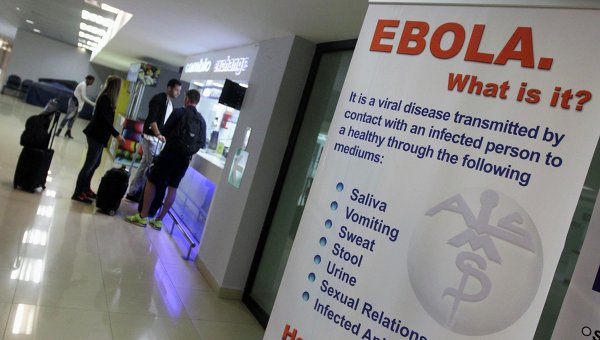
Despite signs of progress in Ebola-stricken West Africa, the virus is still a global threat and will continue to be until it is completely wiped out, White House ‘Ebola czar’ Ron Klain warned Sunday, adding that the U.S. will likely see more cases in the coming weeks and months.
“This won’t be done until we get all the way to zero,” Klain said on CBS’ “Face the Nation.” “It’s like a forest fire. A few embers burning and the thing can re-ignite at any time.”
He said the United States has made “significant strides” to prepare for the occasional case of Ebola, but West Africa is still struggling to contain its outbreak. While Liberia has reduced new cases of Ebola from 50 to 100 a day to five to 10 a day, Sierra Leone and Guinea aren’t having the same success.
“We’re nearing a pivot point in this,” Klain said.
With the outbreak still out of control in West Africa, Klain said it is likely the U.S. will have additional domestic Ebola cases. “We will see (cases) from time to time,” he warned.
Last week, a technician at the U.S. Centers for Disease Control and Prevention was mistakenly exposed to the Ebola virus in a bio-containment lab in Atlanta. The employee has not shown signs of the disease to date but is being monitored for 21 days.
Klain said it is “obviously unacceptable” that Ebola materials were mishandled, and that CDC Director Dr. Tom Frieden is reviewing what went wrong. But, he said, it’s important to put the mishap in context: The CDC lab has been studying Ebola for 20 years without incident, has processed more than 10,000 Ebola samples during the current crisis, and has saved thousands of lives. Furthermore, Klain said, “[t]hanks to the other protocols and procedures in place, there was no risk to the public, to the CDC staff generally.”
“The CDC is a national treasure – and people around look to us for leadership in the Ebola response,” he added. “The American people should be very proud of Dr. Frieden’s team at the CDC.”
Ebola preparedness in the U.S.
Klain was appointed to his position in October by President Obama, who tasked him with leading the U.S. response to Ebola in the aftermath of the first Ebola-related death on U.S. soil.
Thomas Eric Duncan died October 8 at Texas Health Presbyterian Hospital in Dallas, just 10 days after his arrival in the U.S. from Liberia, one of three countries at the epicenter of the Ebola outbreak. Duncan had gone to the hospital days earlier with Ebola-like symptoms — including a fever of 103 degrees — but was misdiagnosed with sinusitis and released with a prescription for antibiotics.
That series of errors, combined with two of Duncan’s nurses becoming infected, raised widespread concerns about lapses in protocol and whether U.S. hospitals are really prepared to handle Ebola cases.
Since then, Klain pointed out, federal health agencies have taken several steps to improve upon existing protocol. The CDC, for example, issued updated guidance on personal protective equipment — including tightened safety precautions for health care workers — and developed a detailed Ebola preparedness checklist to ensure that all hospitals nationwide have the capacity to identify and isolate Ebola patients. CDC officials also created rapid-response teams to travel anywhere in the country in the case of a new Ebola diagnosis. When New York City physician Craig Spencer was diagnosed with the disease, CDC’s rapid-response team arrived the same day to assist with contact-tracing and other critical infection control activities.
Indeed, despite fears about Ebola in the U.S., it is evident that the policies designed by the CDC and other federal health authorities were effective when put to the test: To date, the U.S. has not had a single case of community transmission, nor has the general public ever been in danger.
